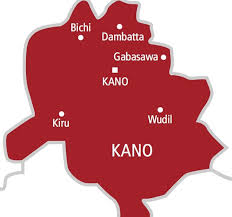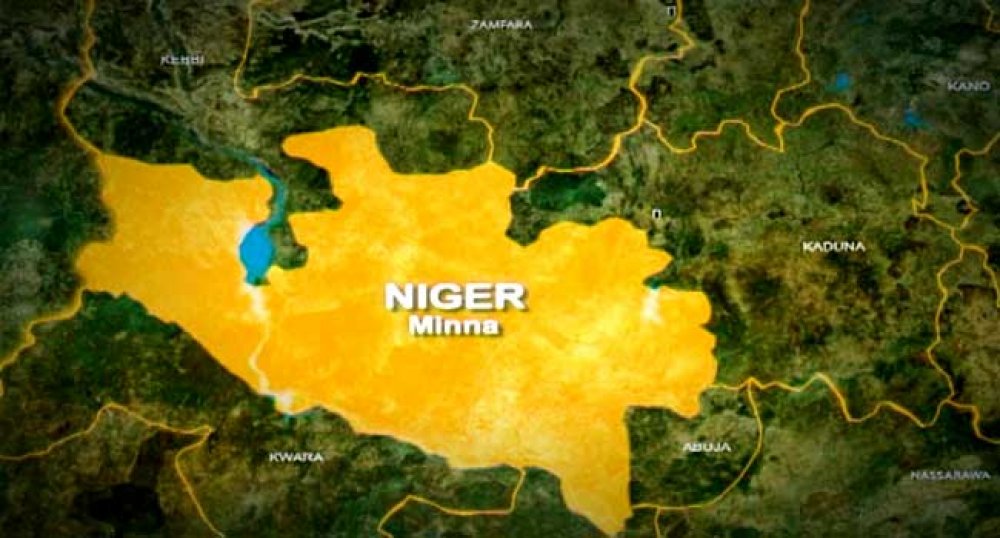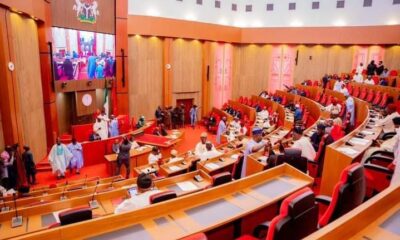NEWS
FG Reintroduces History In Basic Education Curriculum, Begins Training of 3,700 History Teachers
Thirteen years after it was abolished, the Federal Government of Nigeria on Thursday formally announced the return of history as a stand-alone topic in the country’s basic education curriculum.
Additionally, 3,700 history instructors have been chosen to participate in the first phase of training for improved instruction in the subject.
Malam Adamu Adamu, the minister of education, lamented that the threat to national cohesion posed by the country’s retreat into primitive sentiments as a result of a lack of understanding of Nigeria’s evolution as a result of history being removed from the basic education curriculum while speaking at the flag-off ceremony of the reintroduction of the teaching of history and training of History teachers at the basic education level.
The Honorable Minister of State for Education, who was Adamu’s representative, Wishing Nanah Opiah luck as she attends the ceremony with His Eminence Muhammadu Sa’ad Abubakar, the Sultan of Sokoto, and other significant figures in the field of education.
Beginning with the school year 2009–2010, history was dropped from the primary and secondary curricula.
The current Minister of Education, however, ordered the subject’s reintroduction in 2019, in response to the general sentiment at the time that a nation still developing and coping with issues of social cohesion, political stability, and economic development could not afford to forget its past.
While speaking further at the flag-off, Adamu said: “History used to be one of the foundational subjects taught in our classroom but for some inexplicable reasons, the steam of teaching and leaming was abolished.
“As a result, history was subsequently expunged from the list of subject combinations our students could offer in both external and internal examinations compared to the subjects that were made compulsory at basic and secondary levels in Nigeria.
“This single act no doubt relegated and eroded the knowledge and information that learners could otherwise have been exposed to. It was a monumental mistake and have already started seeing its negative consequences
“The loss created by the absence of this subject has led to a fall in moral values, erosion of cvic values, and disconnect from the past. More worrisome was the neglect of the teaching of this subject at basic and post-basic levels of education which invariably eroded the knowledge of the evolution of Nigeria as a country.
“The immediate implication of this was that we lost ideas even of our recent past, and we scarcely saw ourselves as one nation and gradually began retreated into our primordial sentiments,” he said.
The Minister continued that reintroduction will have as its main focus the training and retraining of teachers in order to enhance their capacity development that would lead to the mastery of the subject.
According to him, teachers will receive the necessary training to teach the subject, including the technique and methodology that will eventually give the subject a didactic outlook, pique the children’s interest and cause them to listen intently, removing any initial obstacles that may have prevented learning.
The Executive Secretary of the Universal Basic Education Commission (UBEC), Dr. Hamid Bobboyi, stated that 3,700 History teachers had been chosen from among the 36 states of the federation and the Federal Capital Territory (FCT) for training. This was in reference to building the capacity of teachers who had been disengaged from teaching history for a number of years.
NEWS
Kano Businessman’s Daughter Kidnapped After ₦8m Ransom Payment

In a shocking incident on Sunday morning, unknown gunmen suspected to be kidnappers invaded the home of Alhaji Auwal, a prominent businessman, in Garo Town, Kabo Local Government Area of Kano State.
The gunmen, estimated to be around 10 in number, forced their way into the residence, breaking down a door to gain entry.
An anonymous source revealed that the attackers were heavily armed, with three carrying firearms and the rest wielding other weapons.
READ MORE: Tinubu Urges Stakeholders To Join Forces To Restart Oil Production In Ogoniland
They quickly gathered the entire family in one room, instilling fear and panic in the household.
According to the source, Alhaji Auwal pleaded with the assailants to spare his family and agreed to meet their demands.
The kidnappers, who were determined to extort money, received ₦8 million from the family.
Despite this payment, the gunmen took the businessman’s eldest daughter, Zainab, a secondary school graduate, before fleeing the scene.
The whereabouts of Zainab remain unknown, and as of now, the kidnappers have not contacted the family.
This abduction comes just 48 hours after the tragic kidnapping and subsequent murder of former Gombe State Permanent Secretary, Atiku Mu’azu, who was killed by gunmen after a ₦10 million ransom was paid.
The two incidents have left the residents of Kano in shock and fear, prompting calls for increased security measures in the area.
Attempts to reach the spokesperson for the Kano Police Command, SP Abdullahi Haruna, for comment were unsuccessful as his phone remained unreachable.
Authorities have yet to make any official statements regarding the investigation.
International News
Colombia Blocks US Deportation Flights Over Migrant Treatment

In a bold move, Colombian President Gustavo Petro declared on Sunday that he would not allow US deportation flights carrying Colombian migrants to access his country’s airspace.
The left-wing leader took to X (formerly Twitter) to express his strong stance, stating, “The United States cannot treat Colombian migrants as criminals. I forbid entry to our territory to US planes carrying Colombian migrants.”
Petro made it clear that such flights would only be accepted once Washington established a protocol to ensure the “dignified treatment” of deported migrants.
READ MORE: How Trump Plans To Grow American Economy By $1 Trillion Daily
The president later confirmed in a separate post that he had already turned back US military planes that were en route with Colombian migrants on board, although he did not provide further specifics on the matter.
While AFP sought confirmation from US authorities regarding the blockade of deportation flights, no immediate response was forthcoming.
Petro’s statements come just a day after Brazil’s government voiced similar outrage over the treatment of deported Brazilians.
Brazil condemned the US administration under President Donald Trump, citing instances where Brazilian migrants were deported while handcuffed on flights, describing it as a “flagrant disregard” for their basic rights.
In his remarks, Petro emphasized that he would be open to allowing civilian US flights to transport deported migrants as long as they were not subjected to treatment “like criminals,” signaling a broader call for humane treatment of migrants under international deportation policies.
NEWS
Four Dead, Many Injured As Explosion Rocks Niger State Mining Site

An explosion at a mining site in Sabon Pegi, Mashegun Local Government Area of Niger State, claimed the lives of four individuals and left several others injured on Sunday morning.
The blast occurred as miners resumed operations, sending shockwaves through the community.
While the exact cause of the explosion remains undetermined, local residents have pointed to the poor handling of explosive devices by mining companies as a possible factor.
READ MORE: Thisday Awards: Diana Ross Arrives In Nigeria
The incident has sparked concerns about safety practices within the mining sector.
Community sources confirmed the recovery of four bodies, but authorities fear the death toll could rise.
Investigations are ongoing to establish the cause of the blast and assess the full extent of the damage.
One resident, Aminu, described the chaos that followed the explosion. “The sound was so loud that many of us thought it came from the hydroelectricity dam nearby. People panicked and ran into the bush for safety,” he recounted.
Another community member highlighted the potential role of mining operations in the tragedy.
“Mining companies here frequently use explosives during their activities, and this seems like an operational issue, not something related to terrorism,” the resident said, dismissing concerns about a security threat in the area.
As of the time of reporting, neither the state government nor security agencies have released an official statement regarding the explosion.
















